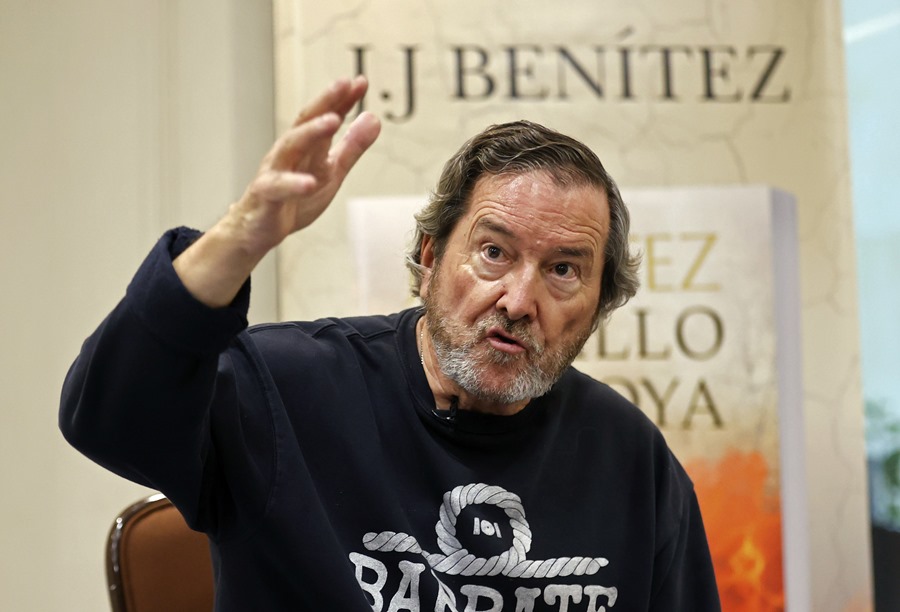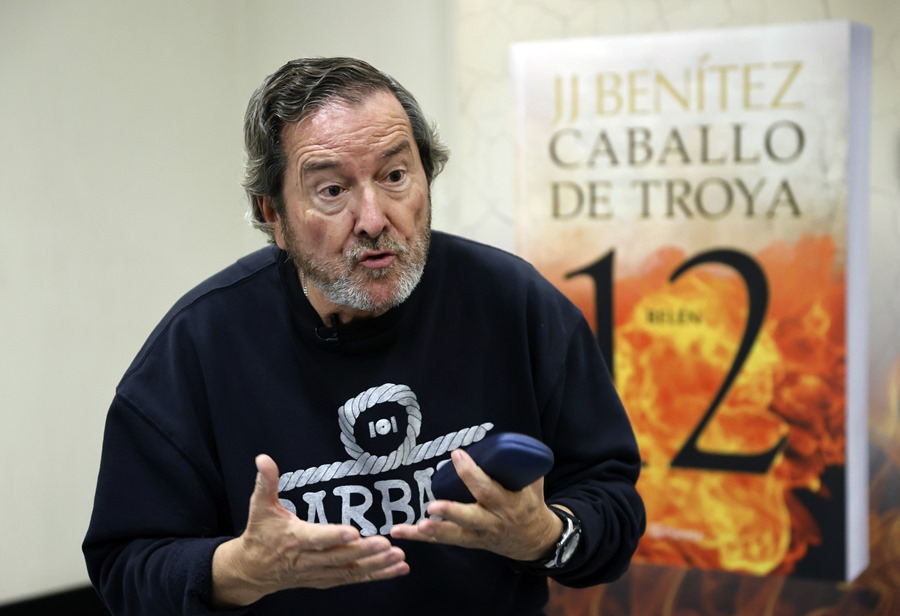Ovid Castro Medina
Bogotá, (EFE).- The Spanish journalist and writer JJ Benítez returns to the charge with “Caballo de Troya 12. Belén”, a book with which he closes that saga in which he presents a “very close” Jesus Christ who “nothing ( has) to do with religion” and assures that the gospels were manipulated.
This is how Benítez, 76, expresses it in an interview with EFE in Bogotá where he points out that with this book published by Planeta he closes the “Trojan Horses”, a saga of 12 novels in which he recounts “the entire life of Jesus of Nazareth , from his childhood to his death”, a total of 7,044 pages with no possibility of more.
With easy words, the writer born in Pamplona (Spain) does not mince words and ensures that everything contained in this book and in others in the series is not the product of invention but of his research and all the material that came to him. to your hands.

“This information reaches me through a former officer of the US Air Force at different times and that is why I say that I am not the author of the Trojan Horse,” he says, accentuating each word.
For Benítez, who published the first book in the saga in 1984, what he has received from different sources seems to him “extraordinarily beautiful, logical information and that the life of Jesus could probably have been like that, not as we have been told.”
tell the truth
Benítez, who wrote his first letters in the schools of the Marist Brothers, considers that the Canonical Gospels -Matthew, Mark, Lucas and John- “are a disaster, they are badly told, mutilated, manipulated”.
In this direction, he considers that the logical thing is that someone would have told the truth about the life of Jesus and his environment, and that they would have had to say that Mary married Joseph “as happened in all Jewish society and logically they have children.”

Contrary to what one might suppose, the comments of hierarchs of the Catholic Church have not affected him. He remembers that after the publication of the first Trojan Horse, in Holy Week of 1984, he received “a lot of very harsh criticism, they crucified me.”
He even assures that in a church in Monterrey (Mexico) “the bishop asked that the book be burned. Fortunately the parishioners were smarter than the bishop and did not burn him.
The physical description of Jesus that is made in the book is also surprising, whom he draws as an athlete 1.81 meters tall, well above the average for people of his time; without a drop of fat on the body, thin hands and fingers.
These and other details are captured by Benítez in a story born from a time travel to the first century, carried out by two American soldiers to find out what Jesus did in his last four years of life.
message of hope
When exposing his point of view, no longer as an author or researcher nor as a journalist, he points out that for him the most important thing about the book is that it leaves him with a feeling of “hope”.

“When one reads the Trojan Horses, hope wets you from top to bottom, from top to bottom whether you want to or not. Whether you are a believer or not. Whether you are an atheist or not”, he adds.
Immediately afterwards he says: “When I read the information that gives rise to the Horses I find that there is hope, which was the true message of the Master.”
Looking at this and other books, Juan José Benítez López, which is his full name, says that he is well paid when people read it.
“Being able to transmit information or being able to transmit research or whatever, means a lot, why? Because the little that I have been able to find, or the much, I am sharing it, which is my job as a journalist, which is what I am, I write 500-page reports ”, she points out.
In the heat of the release of his latest work in this saga, Benítez concludes that, with everything he has written, he has “had the fortune of finding the light.” He has published 70 books and another 30 are waiting to be released to the public.






